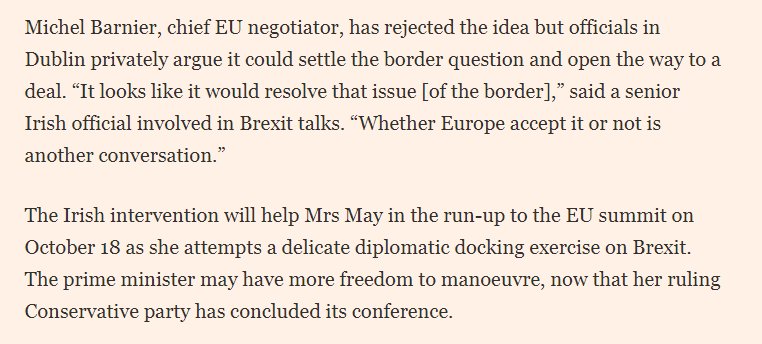So #BorisJohnson and friends are not signed up to €40bn-€60bn #BrexitBill - as we reported
Does that matter? Are they right to be cautious? Where are May/Davis/DexEU on this? Where are the EU? 1/Thread
telegraph.co.uk/news/2017/11/1…
Does that matter? Are they right to be cautious? Where are May/Davis/DexEU on this? Where are the EU? 1/Thread
telegraph.co.uk/news/2017/11/1…
First the bill.
In Florence speech May made two commitments.
1) No EU member will "pay more or receive less over the remainder of the current budget plan" (2014-2020) - so UK pays 2 x €10bn - viz €20bn to fill hole in current EU budget left by Brexit /2
In Florence speech May made two commitments.
1) No EU member will "pay more or receive less over the remainder of the current budget plan" (2014-2020) - so UK pays 2 x €10bn - viz €20bn to fill hole in current EU budget left by Brexit /2
• • •
Missing some Tweet in this thread? You can try to
force a refresh







